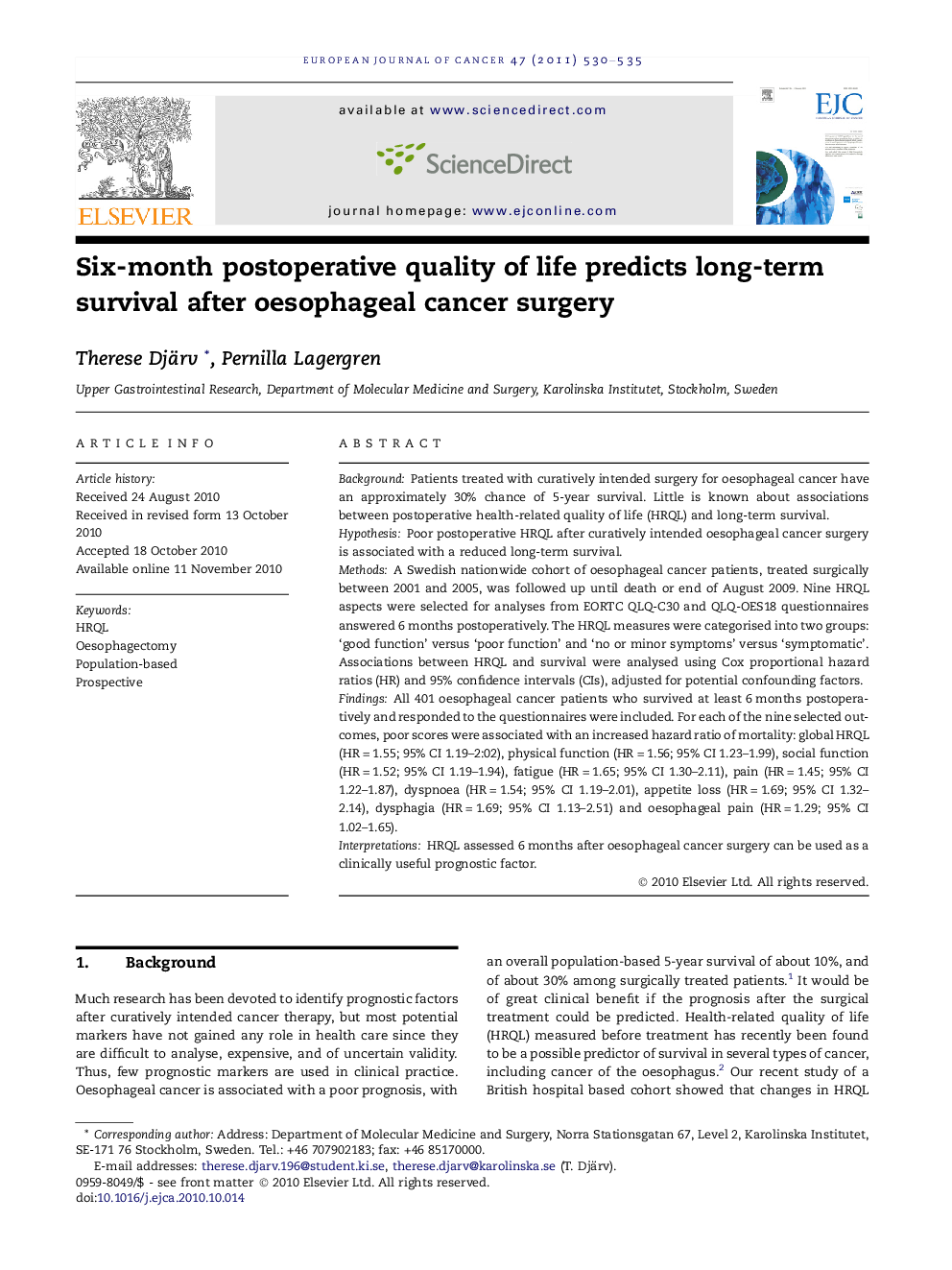| Article ID | Journal | Published Year | Pages | File Type |
|---|---|---|---|---|
| 2122937 | European Journal of Cancer | 2011 | 6 Pages |
BackgroundPatients treated with curatively intended surgery for oesophageal cancer have an approximately 30% chance of 5-year survival. Little is known about associations between postoperative health-related quality of life (HRQL) and long-term survival.HypothesisPoor postoperative HRQL after curatively intended oesophageal cancer surgery is associated with a reduced long-term survival.MethodsA Swedish nationwide cohort of oesophageal cancer patients, treated surgically between 2001 and 2005, was followed up until death or end of August 2009. Nine HRQL aspects were selected for analyses from EORTC QLQ-C30 and QLQ-OES18 questionnaires answered 6 months postoperatively. The HRQL measures were categorised into two groups: ‘good function’ versus ‘poor function’ and ‘no or minor symptoms’ versus ‘symptomatic’. Associations between HRQL and survival were analysed using Cox proportional hazard ratios (HR) and 95% confidence intervals (CIs), adjusted for potential confounding factors.FindingsAll 401 oesophageal cancer patients who survived at least 6 months postoperatively and responded to the questionnaires were included. For each of the nine selected outcomes, poor scores were associated with an increased hazard ratio of mortality: global HRQL (HR = 1.55; 95% CI 1.19–2:02), physical function (HR = 1.56; 95% CI 1.23–1.99), social function (HR = 1.52; 95% CI 1.19–1.94), fatigue (HR = 1.65; 95% CI 1.30–2.11), pain (HR = 1.45; 95% CI 1.22–1.87), dyspnoea (HR = 1.54; 95% CI 1.19–2.01), appetite loss (HR = 1.69; 95% CI 1.32–2.14), dysphagia (HR = 1.69; 95% CI 1.13–2.51) and oesophageal pain (HR = 1.29; 95% CI 1.02–1.65).InterpretationsHRQL assessed 6 months after oesophageal cancer surgery can be used as a clinically useful prognostic factor.
